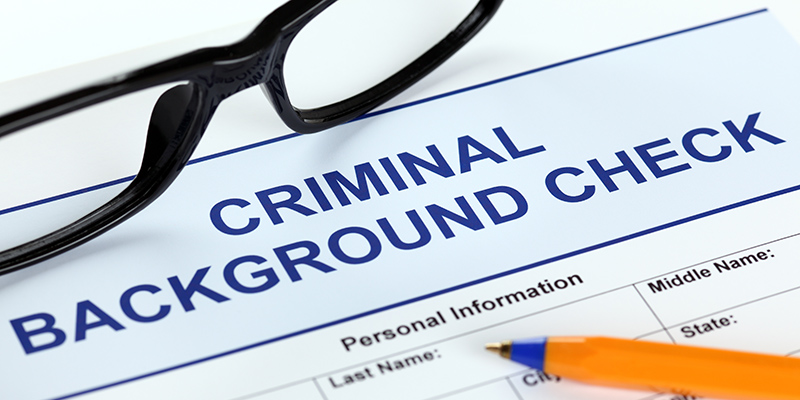Tenant screening is one of the most important parts of the renter application process. Landlords should carefully vet potential tenants to avoid future headaches.
A Landlord’s Guide to Tenant Screening
It is not uncommon for a landlord to come across a bad tenant or two in their lifetime. Bad tenants don’t pay their rent on time (or at all), exhibit no care whatsoever for the rental property, and even sometimes purposely damage the unit. Fortunately, landlords can significantly lower the risk of renting to bad tenants by adopting a careful screening process. While tenant screening services do exist, it is imperative that landlords also know how to do it themselves.
Here are the things every landlord should check before renting out to a tenant:
1. Income/Employment
As a landlord, you obviously want a tenant who has the ability to pay rent. In general, it is a good idea to look for a tenant whose monthly income is at least three times the rental rate.
If a tenant doesn’t earn enough money to cover the cost of your rental rate, then they shouldn’t be considered as a viable applicant. As such, you must perform an employment or income check. Asking for a pay stub is a good way to do it. It is also a good idea to contact the tenant’s employer to verify that the information provided is accurate.
 2. Tenant Credit Check
2. Tenant Credit Check
Checking an applicant’s income might tell you they have the means, but it won’t tell you that they will pay on time. A good way to verify an applicant’s willingness to pay is to do a credit history check.
A high credit score means that an applicant has a proven track record of paying their debts on time. In that respect, it makes sense to conclude that they will likely pay rent on time, too.
3. Background Check
Some tenants have a criminal history, and it is up to you to determine whether or not that should influence your decision. For instance, if an applicant has been arrested for selling illegal substances in the past, they may do it again — this time, on your property. On the other hand, some criminal records are not as much of a deal-breaker.
To verify a tenant’s criminal record, a tenant screening background check is necessary. This minimizes the likelihood of a costly eviction later on. Just remember to evaluate each one individually instead of making a blanket judgment.
4. Past Landlords
Much like you would contact an applicant’s employer, it is important to get in touch with past landlords. This way, you can ask them questions and get a general feel of how they are as a tenant. Here are some of the best questions to ask previous landlords:
- Can you confirm that said applicant was your tenant in the past?
- Did said applicant pay their rent on time?
- Did said applicant damage the property in any way?
- Was said applicant a nuisance to their neighbors?
- Did said applicant break any lease terms during their tenancy?
- Did said applicant leave the unit in good condition when they moved out?
5. Past Evictions
Every tenant screening form should have a section for past evictions. A tenant with a history of being evicted tells you that they have a knack for breaking the terms of their lease. As such, it is likely that you will need to evict them at some point during their tenancy as well. Keep in mind that evictions tend to be a costly and lengthy process, so you don’t want to go through it if you can help it.
Tips for Choosing the Right Tenants
If you’ve never done it before, tenant screening can seem like an uphill battle. But, you can make it infinitely easier by following the tips below.
1. Be Clear in Your Ad
It is important to set your requirements and expectations right from the get-go. Your ad listing should indicate what kind of tenants you’re looking for and what you don’t want in a tenant. This acts as a pre-screening method.
For example, if you don’t allow pets on your property, your ad should clearly reflect that. That way, nobody’s time is wasted. Your ad should also list down any non-negotiables, such as smoking within the unit, the lack of parking spaces, or past evictions.
Don’t forget to take Fair Housing laws into account, though. A lot of tenants sue potential landlords on the basis of discrimination. The federal Fair Housing Act, as well as state-level Fair Housing laws, apply to landlords and the tenant screening process. Make sure to treat all applicants fairly and equally.
2. Use a Standardized Application Form
It is best to come up with a standard tenant screening application that every potential renter should complete. This way, you can evaluate and compare tenants using the same barometers. This also helps landlords remain in compliance with Fair Housing laws.
Your application form should, at the very least, ask for information on the following subjects:
- Employment history
- Current and past landlords
- Prior evictions
- References
You should also require prospective tenants to sign the application form. After that, make sure to give a copy to your tenant and keep one for yourself. This will prove helpful in the future in the event of a dispute.
3. Ask Questions
It is usually hard to get to know a person through an application form alone. You need to meet with prospective tenants and ask them questions in person. A good time to do this is during property showings.
You might find it awkward or uncomfortable to ask certain questions, such as how much they earn and why they want to move. But, asking these questions early on will help you determine whether or not the applicant is a good fit. It can also prevent future problems.
4. Hire Tenant Screening Services
If tenant screening is not something you see yourself doing on your own, hire a renters screening service. Many companies and websites provide screening services. Their services typically include the works, such as a tenant credit and background check, employment check, and a past eviction check.
When selecting a screening service, it is important to look at reviews. You want a company that actually does its job right and provides accurate information. The best tenant screening services will also provide landlords with a tenant screening report consisting of all the details they need.
Tenant Screening Checklist: Questions to Ask
Don’t know what to ask applicants during their interview? These are the tenant screening questions every checklist should have:
- Are you currently renting? If so, where?
- How long have you been renting your current home?
- Why are you moving?
 Have you informed your current landlord of your intention to move?
Have you informed your current landlord of your intention to move?- When do you plan to move in?
- How long do you plan to stay?
- Will you be living alone? If not, how many people will be living with you?
- What line of work are you in?
- How much is your estimated monthly income?
- Have you ever filed for bankruptcy? If so, how recent?
- Do you or any of your roommates smoke?
- Do you have any pets? If so, how many and what kind?
- Will you need a parking space? If so, how many?
- Have you ever been convicted of a crime?
- Have you ever been evicted?
- Will you be able to pay a lease application fee of $X if you decide to apply for this apartment?
- Can you pay the security deposit of $X upon signing the lease?
- Do you have any questions for me?
Property Management Made Easy
Tenant screening is often a time-consuming and arduous process. It requires a lot of research and involves a good amount of social interaction. While many landlords can do it themselves, some just don’t have enough time for the job. This is where a property management company comes in.
Many property management companies offer tenant screening and selection services. Find the best management company in your area today with the help of Rental Choice’s online directory.
RELATED ARTICLES:
- 15 Key Questions To Ask A Landlord Before Renting
- Pets In Rental Properties: The Good And The Bad
- Late Rent: Creating Late Rent Notices And Assessing Fees




 Company
Company